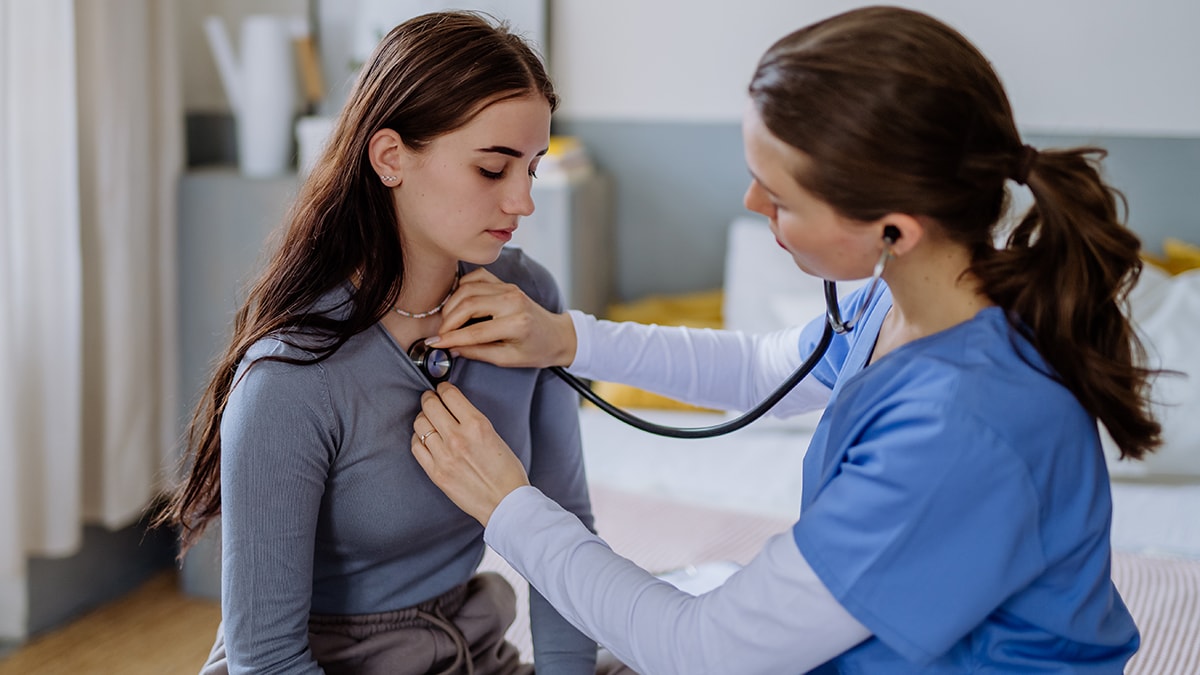At a glance
- Adolescents need regular preventive health care visits.
- Schools can play an important role in linking students to needed health services.
- Schools' role in improving access to health care is especially important in areas where adolescents lack access to consistent, high-quality health care.

Overview
With direct access to millions of students, schools can play an important role in ensuring adolescents get recommended health services.
Schools can directly provide or link students to a range of health services. This includes preventive health services, sexual health services, and mental and behavioral health services. Qualified professionals—school nurses, nurse practitioners, school counselors, psychologists, social workers, and allied health personnel—are common providers or supervisors of health services.
The role of schools in improving access to health care is particularly important:
- In communities where adolescents lack access to consistent, high-quality health care.
- Research suggests that school-based health centers can be an important tool in advancing health equity.
Types of health services adolescents need
Just like adults, all adolescents need regular preventive health care visits. At these visits, adolescents can get recommended screenings, counseling, and immunizations.
Based on individual circumstances, adolescents might also need additional health care, such as:
- Preventative care, like staying up to date on routine vaccinations.
- Treatment for chronic health conditions, such as diabetes.
- Sexual health services that can help prevent HIV, sexually transmitted infections, and unintended pregnancy.
- Mental and behavioral health services.
What schools can do to educate students about health services
- Offer students and parents essential information about the need for recommended adolescent health services. Use various communication channels (emails, flyers) to explain how and where to access health services.
- Use skill-based instruction in health education lessons on how students can access health services.
- Increase knowledge on adolescent health care needs—by providing professional development and medically accurate information to district and school staff.
What schools can do to link students to health services
- Form partnerships with organizations focused on delivering adolescent health services. Partners can include community providers, health departments, and community-based organizations.
- Set up a referral system that helps link students to youth-friendly providers.
- Offer on-site services by qualified health professionals, such as school nurses or school mental and behavioral health providers.
- Through a school-based health center, offer services on-site or at an off-site center.
